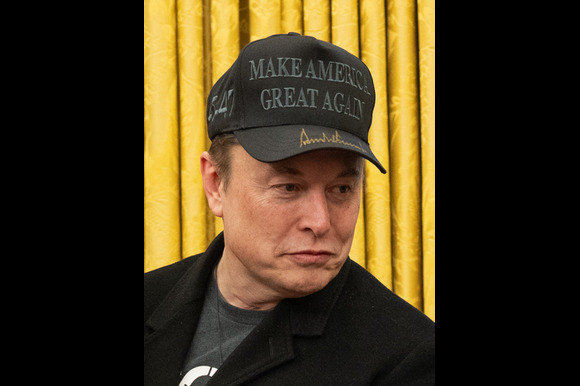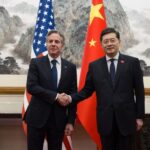Tech mogul Elon Musk has voiced remorse for his recent public criticism of United States President Donald Trump, following a high-profile and highly publicised clash between the two influential figures.
“I regret some of my posts about President @realDonaldTrump last week,” Musk wrote early Wednesday on his social media platform X. “They went too far.”
While Musk refrained from specifying which particular remarks he regretted, his apology follows a series of scathing criticisms of the president, including an explosive, unverified allegation that Trump’s administration deliberately withheld information about Jeffrey Epstein to obscure the president’s alleged ties to the disgraced financier and convicted sex offender.
Musk’s change in tone comes just weeks after stepping down from his post as the head of the Department of Government Efficiency. Once one of Trump’s most powerful allies, especially during his re-election bid and the early months of his current term, Musk made headlines last week by turning against the president over his proposed “One Big, Beautiful Bill.” The bill—a sweeping package of tax cuts and spending increases—was lambasted by Musk as a “disgusting abomination.”
In the wake of that criticism, Musk posted a barrage of attacks on both Trump and the Republican Party’s fiscal agenda. The verbal escalation ignited a public feud between the two high-profile figures. Musk, who had invested hundreds of millions in Trump’s campaign and political apparatus, claimed the president would never have secured re-election without his backing. He went so far as to endorse efforts to impeach the president.
The most incendiary of Musk’s accusations was that Trump was named in the yet-unreleased Epstein files—a claim Musk alleged explained the administration’s failure to disclose the documents. The White House pushed back strongly, characterising the claim as an “unfortunate episode.”
As tensions mounted, President Trump fired back by suggesting the federal government could slash spending simply by cutting contracts and subsidies extended to Musk’s businesses—namely Tesla, the electric vehicle manufacturer, and the aerospace firm SpaceX.
Speaking to NBC News on Saturday, Trump suggested the fallout was final, stating he had no intention of reconciling with Musk. “I have no intention of speaking to him,” Trump said during the interview.
The president also issued a stark warning to Musk, cautioning him that there would be “very serious consequences” if he continued to back primary challenges against Republican lawmakers who had supported the contentious spending bill, which remains under debate in Congress.
Despite the hostilities, Trump struck a more conciliatory tone on Monday, telling reporters that he and Musk had previously enjoyed a “great relationship” and that he wished the billionaire entrepreneur well.
Before offering his public apology, Musk had already taken steps to cool tensions. He deleted several inflammatory posts on X, including his most controversial claim regarding Epstein, and began sharing content from Trump’s social media feed—specifically posts supporting the administration’s immigration policies and denouncing the unrest in Los Angeles.
Musk’s walk-back marks a notable shift in one of the most dramatic and widely watched political-tech fallouts in recent memory, though whether it signals a full reconciliation remains to be seen.






